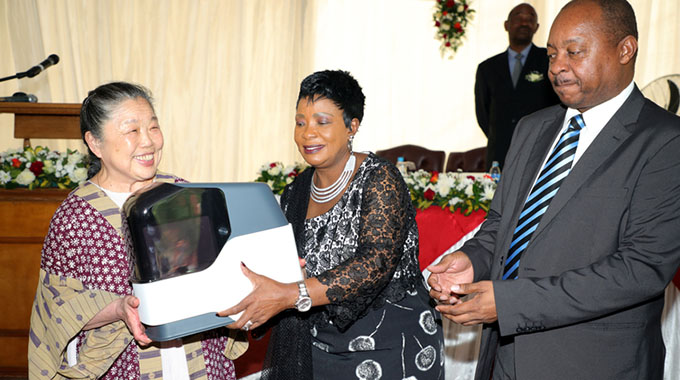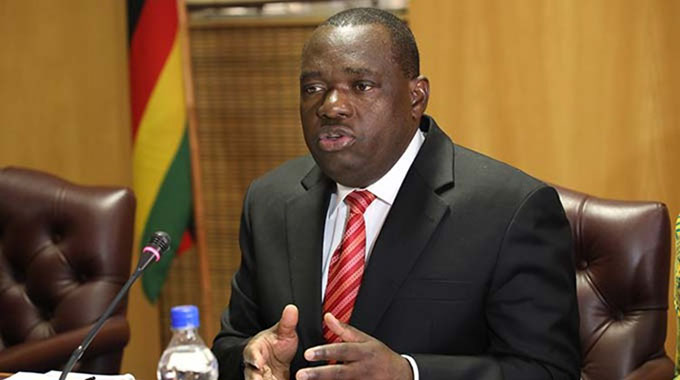First Lady hands over HIV diagnosis, monitoring machines

Paidamoyo Chipunza Senior Health Reporter
First Lady Auxillia Mnangagwa yesterday applauded continued improvement in access to healthcare services in Zimbabwe and committed to continue advocating for such access.
Officially handing over 10 machines sourced from a UK-based diagnostic manufacturer, Diagnostics for the Real World (DRW), which are used to diagnose HIV within an hour in infants, as well as monitoring HIV progression in adults, the First Lady said HIV testing was the foundation to accessing treatment, care and support.
She said without treatment, 30 percent of children born to HIV positive mothers die before their first birthday and this figure increases to 50 percent in the second year.
The First Lady said Zimbabwe scaled up efforts in mother-to-child transmission on HIV, posting impressive results which has seen the rate of transmission declining from 21 percent in 2010 to 6,4 percent in 2017.
To support efforts by the Ministry of Health and Child Care, the First Lady said she will continue championing programmes aimed at reducing the burden of HIV and AIDS to ensure people get access to HIV services, as well as curbing new infections.
She said she will also continue targeting her advocacy on remote areas and marginalised groups through chiefs and church leaders.
The First Lady applauded support coming from development partners, including manufacturers of medicines and diagnostics, saying response to HIV and AIDS cannot be complete without them. She said the donation of the Samba point-of-care machines by DRW will go a long way in quick diagnosis of HIV in infants and viral load monitoring for people living with HIV and Aids. She said the machines, which can be placed in both urban and rural settings, will bring relief to patients in terms of access to diagnostic and monitoring services.
“Our people will no longer have to travel long distances to have the viral load tests done,” said the First Lady.
“Even parents will know the result of their child’s HIV status the same day. To the healthcare worker, it will allow them to act on the results the same day.”
The First Lady said this technology means reduced need for bus fare, reduced waiting times and increased access to both viral load tests and services for early infant diagnosis of HIV.
“This greatly alleviates suffering of the people, as access will be available closer to their homes,” she said.
“Those found with HIV will be started on treatment the same day, which is a great improvement in our health delivery system. This is what we call taking services to the people.”
Speaking at the same occasion, Health and Child Care Minister Dr Obadiah Moyo said diagnostics was an important component in HIV treatment.
He said to correctly diagnose babies born from HIV-infected mothers, highly complex technology such as the Samba machines was required.
“The introduction of-point-of care technologies, such as Samba, is an immediate game changer for people living with HIV,” said Dr Moyo.
DRW founder and CEO Professor Helen Lee said timely diagnosis was important in the outcome of treatment.
She commended Zimbabwe for taking the lead in introducing the machines in its health facilities, describing the innovation as a new generation of technology. “This is a new generation of diagnosis,” said Prof Lee.
“It is like the invention from a landline to a cellphone and Zimbabwe is one of the countries at the forefront in implementing this technology.”
Twenty-five districts in resource-constrained communities in the country are already offering viral load testing through the Samba machines and Government plans taking them to the remaining ones.










Comments